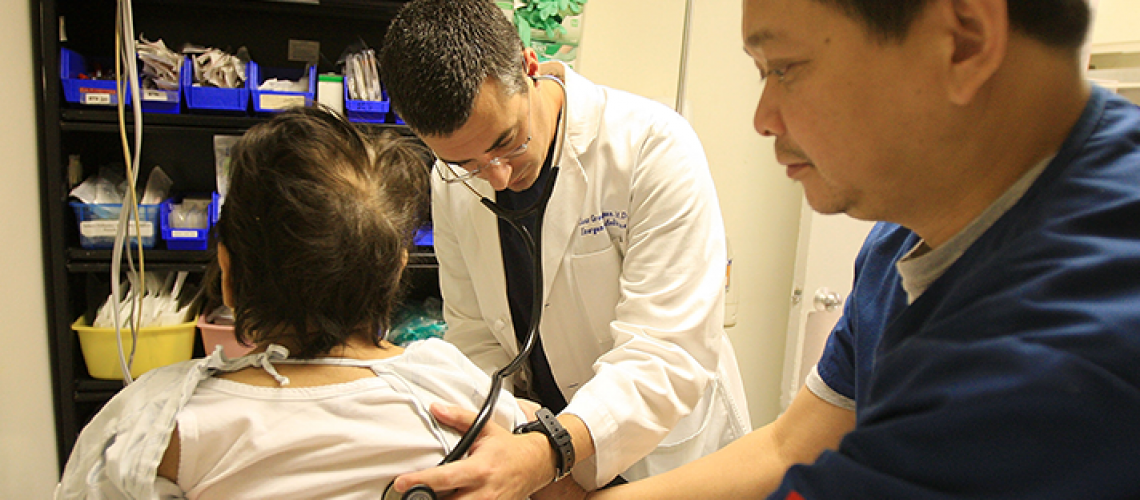Some experts are predicting a large spike in denials beginning on Oct. 1, 2016 when the Centers for Medicare and Medicaid Services will require claims to be more specific. Forward-looking providers are assembling teams to prepare now.
Some commercial health insurance companies are already insisting on greater specificity for claims filed in ICD-10, particularly those submitted as unspecified.
“We’re hearing that payer by payer, they won’t accept unspecified codes for 9 or 10 and they want more discrete codes,” said Jay Deady, CEO of Denver-based Recondo. “We heard from the Blues, who are being more aggressive and stepping out on their own ahead of CMS.”
The Centers for Medicare and Medicaid Services, for its part, said that it will accept and process claims as long as they’re submitted in the correct ICD-10 family of codes until Oct. 1, 2016.
So far the sector has managed to successfully convert ICD-9 to comparable ICD-10 codes using crosswalk conversion programs and by focusing on the code groups they use most often, said Mary Jean Sage, president of The Sage Associates, a billing and coding consulting agency.
“That is why they’ve done as well as they have so far,” Sage said. “But they need to take the next step and start looking at codes beyond their immediate scope and adding more specificity.”
For instance, Sage is conducting a coding audit for a large clinic that regularly performs Well-Child exams and converting the 9 code to 10 isn’t always accurate because of a detail called “normal findings,” she said.
“It has to be classified as either ‘with’ or ‘without’ normal findings and if you convert 9 to 10, it translates as ‘without’ normal findings ― and that isn’t always the case,” Sage said.
What can healthcare organizations do now to prepare for Oct. 1, 2016?
Training is the obvious one. Educating physicians on the higher level of specificity has been challenging but progress is gradually being made, said Jose Rivera, vice president of physician solutions development at Santa Rosa, Calif.-based analytics firm VisiQuate.
OrthoTexas Physicains and Surgeons, for instance, found itself behind the eight ball because physicians did not believe that ICD-10 would ever really happen, according to business office director Tracy Dean.
Following a logical strategy of studying all ICD-10 codes related to orthopedics, Dean’s management team attended a year’s worth of training, and “took every orthopedic ‘cheat sheet’ we could get our hands on to create something that we could roll out to physicians.”
The mission then progressed into phasing out the doctors’ ICD-9 charge sheets, which had Dean wondering how it would be received.
“We knew with ICD-10 we would push our charges out of the EMR system and prevent creating an ICD-9 charge sheet,” she said. “We weren’t sure how it would come out, and after nearly five months there have been a couple stragglers, but they are all pushing the codes out. They are with the program.”
So for the time being, claims are being accepted, finances are stable and code crosswalks between ICD-9 and ICD-10 are working fine. But for how much longer? And what impact will it have when payers start requiring more specificity?
Recondo’s Deady said that conflicts between 9 and 10 could cause interruptions to providers’ revenue cycles.
With more than 900 clients, Recondo’s cloud-based services include patient estimation and eligibility and authorization with a focus on the area where there is “the biggest latent downstream effect” ― business rule adoption tied to ICD-10 by payers.
“We’re starting to see our progressive clients adding in nursing case managers and hospitalists to the work groups and are looking at how to provide a higher level of clinical specificity on the front end,” Recondo’s Deady said. “If that’s not done, the projection is that in a year or year-and-a-half, there will be a spike in claims denials due to no prior authorization on the ICD-10 code.”
——————————————————
Photo courtesy of: Heathcare IT News
Originally Published On: Healthcare IT News
Follow Medical Coding Pro on Twitter: www.Twitter.com/CodingPro1
Like Us On Facebook: www.Facebook.com/MedicalCodingPro







